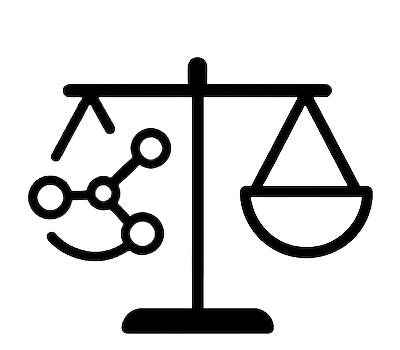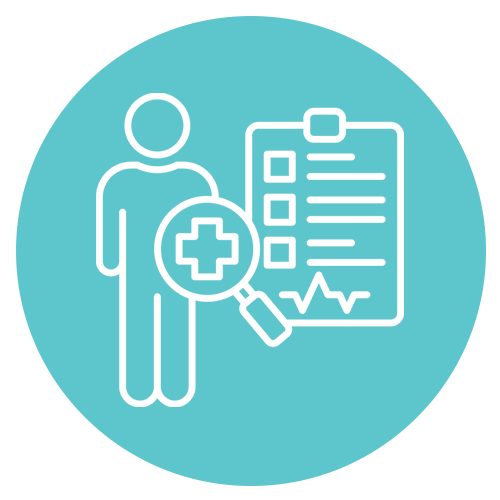
You’re Not Lazy. You’re Not Overeating. It’s PCOS.
Unexplained weight gain, acne, irregular periods, hair loss—it’s not all in your head. We see the full picture.
Talk to a doctor who understands PCOS inside out
What is PCOS?
Polycystic ovary syndrome (PCOS) is a common hormonal disorder in women of reproductive age, characterised by irregular menstrual periods, high levels of male hormones (androgens), acne, and potentially cysts on the ovaries. PCOS can also increase the risk of other health issues like infertility, diabetes, and heart disease.
What is PCOS?
Polycystic ovary syndrome (PCOS) is a common hormonal disorder in women of reproductive age, characterised by irregular menstrual periods, high levels of male hormones (androgens), acne, and potentially cysts on the ovaries. PCOS can also increase the risk of other health issues like infertility, diabetes, and heart disease.

Irregular Periods or Missed Cycles
Hormonal imbalance can disrupt cycles, making them unpredictable or absent.

Irregular Periods or Missed Cycles
Hormonal imbalance can disrupt cycles, making them unpredictable or absent.

Unexplained Weight Gain or Resistance to Weight Loss
PCOS can affect metabolism, making weight harder to manage.

Unexplained Weight Gain or Resistance to Weight Loss
PCOS can affect metabolism, making weight harder to manage.

Acne or Oily Skin That Doesn’t Respond to Products
Elevated androgens often trigger stubborn skin concerns.

Acne or Oily Skin That Doesn’t Respond to Products
Elevated androgens often trigger stubborn skin concerns.

Thinning Hair or Hair Loss (Especially at the Crown)
Hormonal shifts can cause hair to weaken and lead to noticeable loss.

Thinning Hair or Hair Loss (Especially at the Crown)
Hormonal shifts can cause hair to weaken and lead to noticeable loss.

Unwanted Facial Hair Growth (Hirsutism)
Unwanted hair on the face or body is a common PCOS symptom.

Unwanted Facial Hair Growth (Hirsutism)
Unwanted hair on the face or body is a common PCOS symptom.

Mood Swings, Anxiety, or Low Energy
PCOS affects more than hormones; it can impact emotional well-being too.

Mood Swings, Anxiety, or Low Energy
PCOS affects more than hormones; it can impact emotional well-being too.
Why Early Intervention Matters
When left unmanaged, PCOS can affect your energy, self-esteem, and overall well-being.
Early support can prevent long-term complications and help you feel grounded in your health again.

Energy, Mood & Mental Clarity
PCOS can trigger fatigue, brain fog, anxiety, or low mood, affecting how you function and feel each day.

Body Image & Confidence
Skin changes, hair growth patterns, or physical transformations can influence how you perceive and carry yourself.

Fertility Challenges
If you're trying to conceive, irregular ovulation can hurt your chances.

Weight Management
PCOS can make it harder to lose weight. Excess weight can make it harder to reverse PCOS. Breaking this vicious cycle can be different for every person.

Missed or Late Diagnosis
Because PCOS symptoms can mimic other conditions, many women spend years without clear answers or proper care.

Long-Term Health Risks
If unmanaged, PCOS can raise the risk for insulin resistance, Type 2 diabetes, and endometrial issues.

Energy & Mood
PCOS can trigger fatigue, brain fog, anxiety, or low mood, affecting how you function and feel each day.

Body Image & Confidence
Skin changes, hair growth patterns, or physical transformations can influence how you perceive and carry yourself.

Fertility Challenges
If you're trying to conceive, irregular ovulation can hurt your chances.

Weight Management
PCOS can make it harder to lose weight. Excess weight can make it harder to reverse PCOS. Breaking this vicious cycle can be different for every person.
Why Early Intervention Matters
When left unmanaged, PCOS can affect your energy, self-esteem, and overall well-being. Early support can prevent long-term complications and help you feel grounded in your health again.

Energy, Mood & Mental Clarity
PCOS can trigger fatigue, brain fog, anxiety, or low mood, affecting how you function and feel each day.

Body Image & Confidence
Skin changes, hair growth patterns, or physical transformations can influence how you perceive and carry yourself.

Fertility Challenges
If you're trying to conceive, irregular ovulation can hurt your chances.

Weight Management
PCOS can make it harder to lose weight. Excess weight can make it harder to reverse PCOS. Breaking this vicious cycle can be different for every person.

Missed or Late Diagnosis
Because PCOS symptoms can mimic other conditions, many women spend years without clear answers or proper care.

Long-Term Health Risks
If unmanaged, PCOS can raise the risk for insulin resistance, Type 2 diabetes, and endometrial issues.
Because You Deserve Better Than Misinformation

“You just need to lose weight.”
PCOS causes weight gain, not the other way around. Our approach is rooted in metabolic and hormonal science, not blame.

“You can’t get pregnant with PCOS.”
PCOS affects ovulation, but with the right support, pregnancy is very possible and common.

“Birth control is the only treatment.”
While it can be useful, PCOS care goes far beyond symptom suppression. We help you find long-term balance.

We hear it every day: misconceptions that delay diagnosis, derail treatment, or cause emotional harm. Let’s clear the air.
Because You Deserve Better Than Misinformation
We hear it every day: misconceptions that delay diagnosis, derail treatment, or cause emotional harm. Let’s clear the air.
“You just need to lose weight.”
PCOS causes weight gain, not the other way around. Our approach is rooted in metabolic and hormonal science, not blame.
“You can’t get pregnant with PCOS.”
PCOS affects ovulation, but with the right support, pregnancy is very possible and common.
“Birth control is the only treatment.”
While it can be useful, PCOS care goes far beyond symptom suppression. We help you find long-term balance.
Be the best you
with care personalized to you
At Paloma Care, we don’t treat PCOS as a “one-size-fits-all” diagnosis.
Our care considers your life stage, your goals, and your complete health picture.

We do comprehensive hormone testing and an ultrasound to assess your hormonal health. Using your assessment results, we develop a bespoke treatment roadmap that combines the right medication, targeted nutrition strategies, and exercise guidelines.

You will receive ongoing guidance from a dedicated care team, including your OB-GYN and nutritionist, with regular check-ins to adjust your program as needed.

We recognise how hormonal shifts can affect your emotional wellbeing. Our experts have experience in helping people navigate this arduous journey.

Our treatment includes guidance around nutrition, stress, exercise, and rest, designed to improve your quality of life, not just your lab results.
Take Control of PCOS With a Team That Gets It
PCOS isn’t just a diagnosis; it’s a lived experience.
We’re here to help you manage it with clarity, care, and a plan that works.
What to Expect When You Sign-Up for Our Care Program
From your very first consultation, we aim to make you feel heard, informed, and cared for, with zero judgment and total clarity.
Initial Discovery Call
Start with a safe, open conversation about what you’re experiencing and what support you need.
Personalised Assessment & Plan
After diagnostic testing and consultation, receive a plan tailored to your hormonal, metabolic, and lifestyle needs.
Ongoing Check-ins & Adjustments
Your care adapts as your body and needs change; our team stays by your side.
PCOS : Common Questions
Wondering what to expect, how it works, or if it’s right for you? Here are the answers that you might be looking for.
How do I know if I have PCOS or just irregular periods?
PCOS can show up as missed periods, acne, unwanted hair growth, or weight fluctuations. At Paloma Care, we use detailed assessments and lab testing to understand the root cause behind your symptoms.
Can PCOS really affect fertility?
Yes, PCOS can disrupt ovulation, making it harder to conceive. ith the right medical and lifestyle changes, many women go on to have healthy pregnancies, and we’re here to guide you through that journey.
I’ve been gaining weight even though I eat healthy. Is this related to PCOS?
It could be. PCOS or other hormonal imbalances can often affect insulin sensitivity and metabolism, making weight management harder. We focus on evidence based medical care, nutrition and lifestyle guidance tailored to how your body responds.
Will I have to be on medication forever?
Not necessarily. Some people are able to discontinue medication whereas others respond best to a combination of medication and lifestyle-based care. We help you find a sustainable plan based on your symptoms, goals, and preferences.
How do I get started with Paloma Care?
It starts with a simple discovery call. We’ll talk through your concerns and walk you through the next steps.
You Deserve Answers
Don’t settle for vague advice or years of unanswered questions.
Let’s get you the care you’ve been waiting for.


